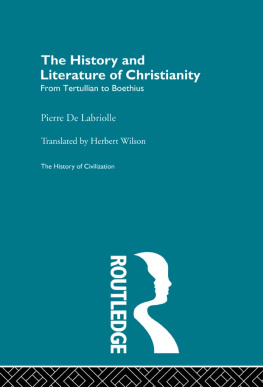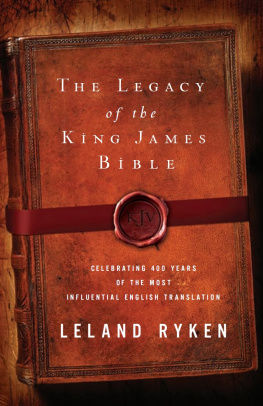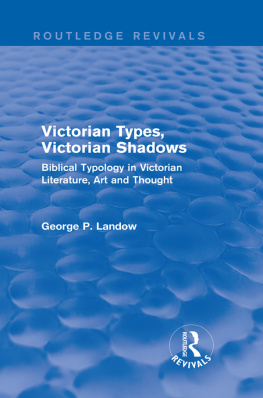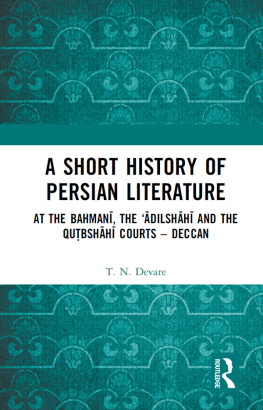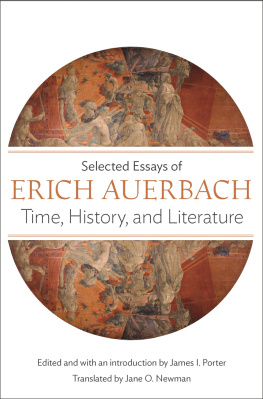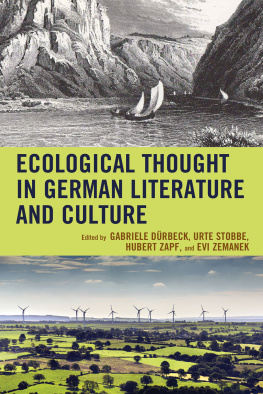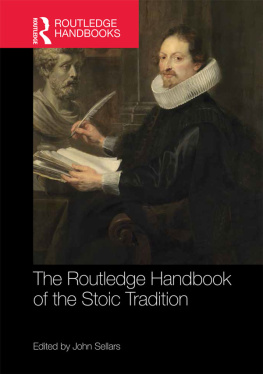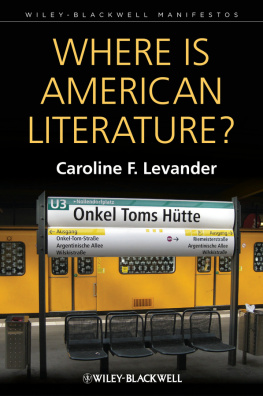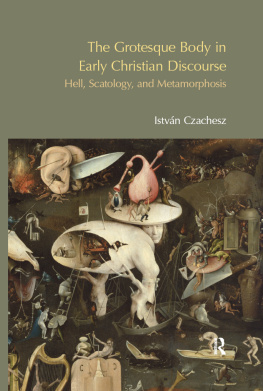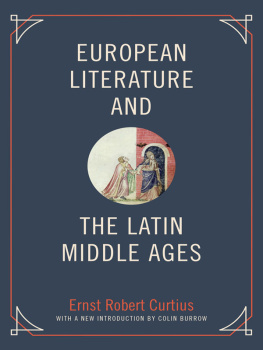First published in 1924 by Routledge, Trench, Trubner
2 Park Square, Milton Park,
Abingdon, Oxon, 0X14 4RN
&
711 Third Avenue,
New York, NY 10017
Routledge is an imprint of the Taylor & Francis Group
First issued in paperback 2012
1996 Routledge
All rights reserved. No part of this book may be reprinted or utilized in any form or by any means electronic, mechanical, or other means, now known or hereafter invented, including photocopying and recording, in any information storage or retrieval system, without permission in writing from the publishers.
British Cataloguing in Publication Data
ISBN13: 978-0-415-15599-1 (hbk)
ISBN13: 978-0-415-60684-4 (pbk)
ISBN Judaeo Christian Civilization
ISBN13: 978-0-415-15615-8 (4 volume set)
ISBN History of Civilization ISBN13: 978-0-415-14380-6 (50 volume set)
ISBN 978-1-136-20212-4 (ePub)
Publishers Note
The publisher has gone to great lengths to ensure the quality of this reprint but points out that some imperfections in the original may be apparent
FOREWORD
I HAVE been asked to write a brief Foreword to this excellent translation of this important and scholarly work, the Histoire de la Littrature Latine Chrtienne. I gladly accepted the task, if only to testify my personal appreciation of the volume and to record my thanks to the author, M. Pierre de Labriolle, for having given us a work that has long been wanted by scholars and students of Latin literature.
M. de Labriolle is well-known from his numerous essays upon special points and persons connected with this subject. Here in England, it is to be feared, the study of the influence of Early Christian literature upon European thought and culture has been much neglected, and it would hardly be an exaggeration to suggest that many who have been educated upon the works of the Pagan classical authors would hardly know the names, and still less the works, of the great Christian writers of the early centuries. In France and in Germany the importance of this side of general literature is being more and more recognized, and its influence is clearly seen in the literary output of the last century. In France, for instance, Chateaubriand was deeply read in the Early Christian Latin literature. This is evidenced in his Les Martyrs and others of his works. So, too, to name only one other case: M. Gaston Boissier has given us many charming studies of Christian Latin authors in his always suggestive Fin du Paganisme.
At the present time in England there is, I believe, a distinct tendency to recognize the importance of the study of the Latin writers of the Early Christian ages. The late Dr Mayor of Cambridge lectured on Tertullian, and made a profound study of the text of the Apologeticum, and his notes were published with an introduction and translation by Professor Souter at the Cambridge University Press in 1917. In this the eminent scholar Dr Souter fully recognizes the importance of Early Christian literature. It is well to note here that in the very useful Tables printed at the end of M. de Labriolles volume full justice is not done to the many excellent studies and translations of the Christian classics which have been made by English scholars. To judge from these tables only, a reader would suppose that very little indeed had been done by English scholars in this field of work. There are very many such studies and translations in existence. For example, to name but a few: We have the Ante-Nicene Christian Library (published by T. & T. Clark), the Library of the Fathers of the Holy Church (Newman and other scholars), A Select Library of Nicene and Post-Nicene Fathers (Wace and Schaff), various translations among the S.P.C.K.s publications, etc. This is not said by way of criticism or to detract in any way from the great value of this work of our author, but to assist any student who may desire to profit by this volume and, taking up the study of the Christian classics, would wish to know what English editions to consult.
M. de Labriolles volume begins with a long Introduction of some thirty pages, in which, having pointed out the relatively recent interest taken by scholars in the study of Early Christian Latin writers, he examines the attitude of Christianity, both theoretically and practically, towards the old Pagan models, and the influence of these upon the formation of the literature of the Christian ages. The Introduction should be read in its entirety; it will repay a careful study. It concludes by introducing the reader to the chief collections of Latin texts contained in the Patrologia Latina of Migne and the Vienna Corpus still in progress.
The volume itself, after this Introduction, is divided into five books, which contain notices of the chief Christian writers from the beginning till what is known as the Middle Ages, that is, from the great Tertullian at the end of the first century of the Christian era to St Isidore of Seville at the close of the sixth. The books are divided into Chapters, prefaced by bibliographical notices and enriched by notes of anything which could serve to inform the reader on the subject- matter treated of. The lives of the various writers are brief, but are complete, and contain the important historical settings which gave occasion to the writing of the various pieces. Only an examination of the volume itself can give an adequate idea of the rich material which the author has gathered together and here offers to the student of Christian literature.
No better idea can be given of the scope and purpose of this work than a quotation from the passage with which M. de Labriolle concludes the volume. He writes:
After Boethius, Cassiodorus, and Isidore of Seville, the frame-work of the intellectual life of the Middle Ages was established for a long time. A natural line of demarcation at this point closes the history of Latin Christian literature.
I believe I have not over-estimated its merits. I have not concealed the fact that really finished literary authors are rare.... But let us guard ourselves against a certain rather rigid type of humanism, which would only judge the Christian writings from the point of view of the classic ideal.... Whatever be its defects, this vivid Latin Christian literature deserves to be more carefully studied than appears to be generally the case, and whoever is interested in the history of ideals will not regret having made the effort. There are numerous historical and literary problems which can only be grasped fully after we have seen their factors coming to light during the period we have just traversed [in this volume]. And, again, how many strong personalities are revealed, how many magnificent minds and pathetic souls anxious for the destiny of mankind, each one preserving, in spite of the community of their faith and the identity of its theoretic solutions, their original action upon this eternal enigma! On the day when our Higher Course of Studies shall have taken a more generous interest in some of their masterpieces, scholarly research will again turn in the direction of patristic study.

